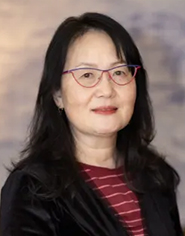

Jin Lixian
City University of Macau
Dr. Jin Lixian is Chair Professor in Applied Linguistics and Dean of Faculty of Humanities and Social Sciences at City University of Macau. With over 40 years of working in higher education, she worked fully time in China, Britain and Hong Kong and developed herself from a lecturer to a chair professor in applied linguistics and intercultural learning. She is President of International Association of Intercultural Communication Studies. She has been awarded research grants and has led international research teams from China, Malaysia, Singapore, and EU countries to study ELT, intercultural communication in leadership and business contexts and bilingual language assessments for language disability. Sponsored by the British Council and local governments, she has provided teacher, healthcare and other professional training sessions in China, Britain, Lebanon, Hong Kong, Singapore, Malaysia, Turkey, Iran, Cyprus and Japan, She has produced College English textbook series as editor and writer: Creative Reading, Creative Communication, Creative Writing; Teachers’ books for New Standard College English and New Horizon College English for Macmillan jointly with Chinese top publishers; as well as translated a series of children picture books into English. She is an executive editor or editor for a number of international and national journals, including as a Co-Editor in Chief for a new journal of Studies of Applied Linguistics in Asia (SALA). Her over 200 publications focus on researching cultures of learning, intercultural communication, sustainable leadership, metaphor and narrative analysis and bilingual clinical assessments.
Plenary Speech
Title:
Evaluating and extending materials: developing students’ thinking, imagination, and cultural awareness
Abstract:
In this presentation we first summarize some major criteria for evaluating language teaching textbooks; this extends familiar considerations in published lists of criteria aligned towards language skills and active communication. We emphasize the development of student thinking skills and creativity, intercultural communication abilities and humane personal and social values. We then give practical examples to show teaching strategies which make solid use of materials, with ideas for adapting and extending them to engage students’ thinking, imagination, and cultural awareness. We show how some apparently simple materials (such as text extracts, fictional stories, real life memories, and visual illustrations) can be used step-by-step to help learners think about some contemporary issues which are often raised more theoretically as being important in applied linguistics and in language education, but are not often visible in textbooks. These applications extend key ideas about point of view and perspective; expressing identities and voice; understanding and making arguments; developing empathy, appreciation of others, and intercultural awareness. Further examples and applications are given in the accompanying workshop.


